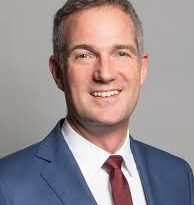Gisela Stuart – 2015 Speech on Syrian Air Strikes
Below is the text of the speech made by Gisela Stuart in the House of Commons on 2 December 2015.
It is easy to be brief at this point, because I can honestly say that I agreed with every word of two speeches made by Labour Members. Both my right hon. Friend the Member for Derby South (Margaret Beckett) and my right hon. Friend the Member for Kingston upon Hull West and Hessle (Alan Johnson) made an extraordinary case in explaining why action was necessary, and also why inaction would be so difficult to defend.
The decision that we are being asked to make is particularly important in the light of the social media that now exist. Our email inboxes are full of messages saying, “Don’t do it.” I am relieved that I am being asked not to do it, because I would be deeply troubled if my inbox was full of gung-ho messages saying, “Go and get them.” We have come here to make an extremely careful judgment, and we can only ever make the judgment that is best at any one time.
There are many unanswered questions about the part of the world that we are discussing, and none of us can claim to know what the next steps will be. However, there are some things that we do know, and one of them is that just as actions have consequences, so does inaction. The danger for Governments is not knowing when not to act; given that it is always possible for them to act, they must always ask whether it is the right thing to do. The danger for Oppositions is in thinking that because they are in opposition, it is appropriate always to oppose. Occasionally it is right to do things, and occasionally it is right for an Opposition to support a Government, even when they do not entirely agree with a motion on the Order Paper.
I will support the motion tonight because it is good enough, and it is good enough for three reasons that are closely intertwined. We face a conflict with Daesh, because they are terrorists and bad people with, in my view, no redeeming features. We also face a potential civil war with Assad, and—this has not been mentioned so far—a very difficult conflict involving Turkey and Russia. However, the fact that the situation is complicated does not mean that we should not do anything.
Four things persuaded me that it was, on balance, better to do something than to do nothing. The starting point was the United Nations resolution, which was supremely important. Then there was the fact that our airstrikes are adding capacity, which will enhance the actions that we are already taking in Iraq. If we extend those actions to Syria, we will not only bring something to the table, but strengthen the coalition. As the motion rightly points out, we are looking at a political process. Anyone who has been involved in negotiations knows that military actions will not succeed on their own without a political process. The two go hand in hand, and each enhances the other. That political process will be vital.
There is one mistake that I hope we will not make again. We must not take our eye off the fact that we need functioning state institutions when we take military action. That was one of the errors that we made in Iraq. I hope that it will be different in Syria, because of the work that the Department for International Development is doing, and the work we are doing with the coalition to retain the state structures. We all know we cannot predict what will happen next, but we also know that, whatever happens next, we will be acting with our allies, because countries such as France are calling on us. If the situation had been reversed and the same thing had happened in London, and we asked France for help and it said no, we would have been appalled.
Finally, we have to answer the question: why now? Why do we not wait a few weeks? The dynamic changed when Russia entered the theatre, but most importantly, action is in the national interest, because Daesh’s ability to both operate in Syria and organise terrorist attacks on mainland Europe has increased tremendously. We must act now, because if we want to stop that war, this may not be the perfect first step, but at this stage, it is certainly the best first step that I am being asked to support.

